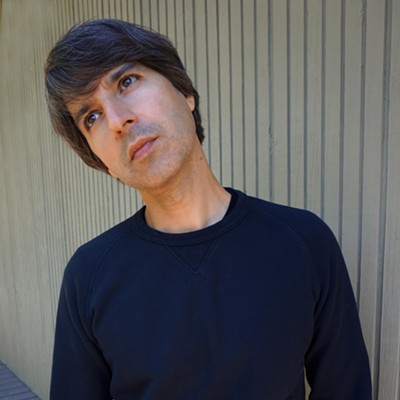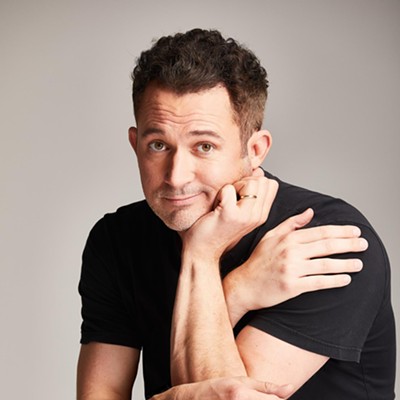Poets Prageeta Sharma, Esther Belin and Dan Beachy-Quick are part of the UA's Emergence: The Next Word in Poetry series--a two-day event that includes a panel discussion and individual readings by the three featured poets at various times Oct. 13-14. The 2-year-old Emergence series differs from the Poetry Center's venerable Visiting Poets and Writers Reading series (now in its 42nd year) in that it highlights poets who have published a single book, but one that is judged to represent new directions in which the art form is headed.
"We developed the series," says Literary Director Frances Sjoberg, "because there are so many books of poetry being published right now, and lots of people tend to say there are too many being published. But it's anything but--a lot of these first books are pretty powerful; there's really great poetry being published, and it's a really exciting generation that is coming up. This is a way for us to show the quality and cultural diversity in the work."
As a contemporary poetry archive, the UA Poetry Center acquires every book of poetry that is published in English and distributed.
"Across my desk comes every first book of poetry and every prize-winning book," says Sjoberg, "and I flip through to get a sense of who's writing what sort of poetry and how the conversations are moving among poets. I take my recommendations to an advisory board, also comprised of people who read a lot of contemporary poetry, and we throw ideas and names around until we come up with a list of people we're interested in."
"Interested in" is the Victorian version of what Sjoberg really feels when talking about poets like Prageeta Sharma: "Her work just shoots into my heart," she says.
Esther Belin's first collection of poetry, From the Belly of My Beauty (University of Arizona/Sun Tracks, 1999), won an American book award; her essays, poems and stories have appeared in publications such as the anthologies Neon Pow Wow, Speaking for the Generations: Native Writers on Writing and Home is in the Blood. Her poems, according to Sjoberg, are "tools--powerful tools--that assert her own identity as a Navajo woman and bridge her disparate geographies, both real and metaphorical."
Since the curating of the series, Dan Beachy-Quick's original first book, North True South Bright (Alice James Books, 2003) has been joined by a second, Spell (Ahsahta Press, 2004); he's had poems and reviews published in literary journals that range from Volt to the Paris Review. Beachy-Quick is currently a professor at the School of the Art Institute of Chicago; Sjoberg describes his work as "philosophically driven; he uses poems to get deeper into the mind. (He) studies language to understand ideas the way Michelangelo studied corpses to understand the body."
Prageeta Sharma--punk-rock drummer and author of Bliss to Fill (subpress, 2000)--has since published A Just-So Poem (a chapbook released in 2003) and The Opening Question (University Press of New England, 2004). "(Sharma) is sharp, witty and lyric," Sjoberg wrote to me in a later e-mail. "Her work is a pleasure, but it changes your center of gravity. Her poems are like a floating pier made of words: You can walk on it, but your knees go wobbly, and you know it's just a plank between you and sinking."
(Would you expect anything less poetic from the literary director of a poetry center?)
Sharma, Belin and Beachy-Quick will read from their work at 8 p.m. Wednesday, Oct. 13 in the Modern Languages Auditorium, located on the UA campus on the Mall, west of Cherry Avenue. At 10 a.m. Thursday, Oct. 14, a panel discussion titled New Trends in Contemporary Poetry will be held at the UA Poetry Center (1600 E. First St.). Three graduate students in the UA's MFA poetry program--Paul Klinger, Jeremy Frey and Kristi Maxwell--will join the featured poets on Thursday's panel.
Samples of the poets' work can be found online. The reading and panel discussion are free and open to the public; for more information, call the Poetry Center at 626-3765.







